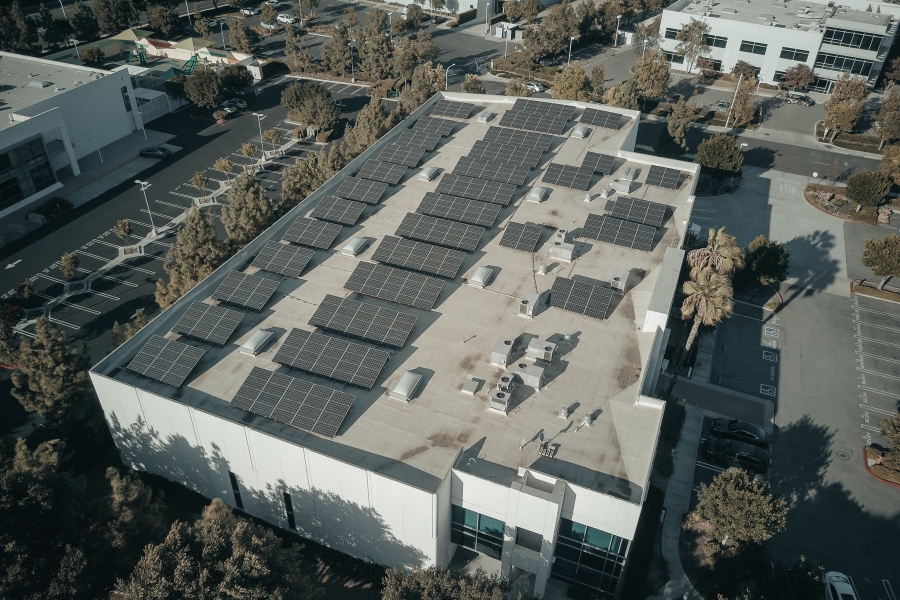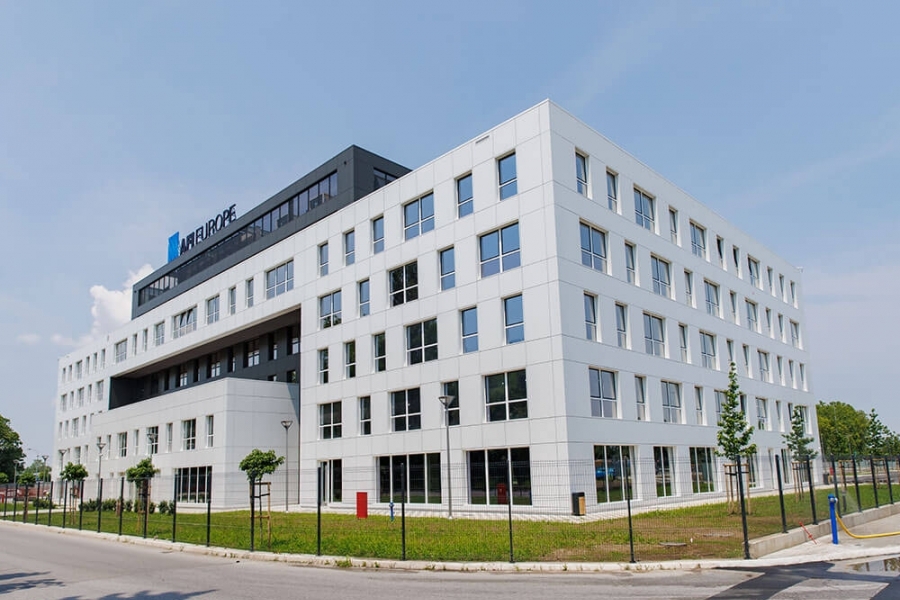
Heat pumps are becoming an increasingly popular choice for heating and cooling residential and commercial buildings. Our company specializes in the installation and design of heat pump systems in construction, providing solutions for residential buildings, commercial properties, and warehouses. In this article, we explore the various types of heat pumps and their advantages in the context of residential and commercial buildings.
The air-to-water heat pump is one of the most common types of heat pumps used in residential and commercial buildings. This type of heat pump utilizes outdoor air as a heat source and water as the medium for energy transfer. Here are some key characteristics of air-to-water heat pumps:
Efficiency: Air-to-water heat pumps are highly efficient in converting available energy from outdoor air into thermal energy for heating or cooling the building. They can provide significant energy savings compared to traditional heating and cooling systems.
Flexibility: These heat pumps can be used for heating buildings of various sizes and types, including residential houses, apartments, commercial buildings, and warehouses. They are also compatible with different types of heating systems, such as radiators, underfloor heating, or fan coil units.
Environmentally Friendly: Air-to-water heat pumps utilize renewable energy from outdoor air, making them an environmentally friendly choice for reducing greenhouse gas emissions. These heat pumps do not directly produce gases that contribute to global warming but rather utilize energy already present in the environment.
High Energy Efficiency: Air-to-water heat pumps can achieve a high level of efficiency, providing more thermal energy than the electrical energy they consume. This allows for significant savings on heating and cooling bills.
Reduced CO2 Emissions: The use of air-to-water heat pumps contributes to the reduction of CO2 emissions in the atmosphere, which has a positive impact on environmental protection and reducing the ecological footprint.
Improved Comfort: Air-to-water heat pumps allow for precise temperature control in indoor spaces, ensuring optimal comfort for residents or building occupants. Additionally, these heat pumps provide the option of cooling during the summer months, enhancing overall building comfort.
Long-term Investment: Although the initial installation costs of air-to-water heat pumps may be higher compared to traditional heating systems, their long-term cost-effectiveness often outweighs these expenses. Energy savings over time can result in significant financial returns on investment.
The water-to-water heat pump is another efficient option for heating and cooling residential and commercial buildings. This type of heat pump utilizes groundwater or surface water as a heat source and as the medium for energy transfer. Here are some key characteristics of water-to-water heat pumps:
Exceptional Efficiency: Water-to-water heat pumps can achieve a very high level of efficiency by utilizing the relatively constant temperature of water from natural sources as a heat source. This allows them to provide stable and efficient heating throughout the year.
Sustainable Energy Source: The use of groundwater or surface water as a heat source makes water-to-water heat pumps a sustainable choice. These heat pumps do not deplete water sources but rather utilize energy that is continuously replenished.
Precise Temperature Regulation: Water-to-water heat pumps enable precise temperature control within the building, providing constant comfort and optimal heating or cooling according to users needs.
Extended Lifespan: Water-to-water heat pumps are known for their long lifespan. When properly maintained, these heat pumps can provide reliable and efficient operation for many years, making their installation a long-term investment.
High Energy Efficiency: Water-to-water heat pumps utilize a natural heat source - groundwater or surface water, which maintains a relatively constant temperature throughout the year. This allows for high heat transfer efficiency and reduced energy consumption.
Reduced CO2 Emissions: The use of water-to-water heat pumps reduces CO2 emissions into the atmosphere, contributing to mitigating climate change and protecting the environment.
Utilization of Local Energy Sources: Water-to-water heat pumps utilize local water sources as a heat source, reducing dependence on energy imports and supporting the local economy.
Passive Cooling Capability: Water-to-water heat pumps can also be used for passive cooling during the summer months by utilizing the lower temperature of groundwater for building cooling.
Long-term Cost-effectiveness: Although the installation of water-to-water heat pumps may require higher initial investments, in the long run, these heat pumps can result in significant energy cost savings and return on investment.
Air-to-water and water-to-water heat pumps represent efficient and environmentally friendly options for heating and cooling residential and commercial buildings. Both types of heat pumps offer high energy efficiency, reduced CO2 emissions, and enhanced comfort for users. When choosing a heat pump, it is important to consider the specific needs of the building, local conditions, and budget. Our company will assist you in selecting the most suitable heat pump type for your requirements and provide professional installation and support.
To learn more about our system installation and design services, contact us today to find the best solution for your business needs together.

Solar heating is an increasingly popular solution for heating commercial buildings. By harnessing the power of the sun, businesses can enjoy numerous ...
More

As a company engaged in the installation and design of heating systems in the construction industry for residential and commercial buildings, business...
More

Shopping malls are bustling spaces where shoppers come to explore, browse, and make purchases. A crucial aspect of creating a pleasant and inviting en...
More